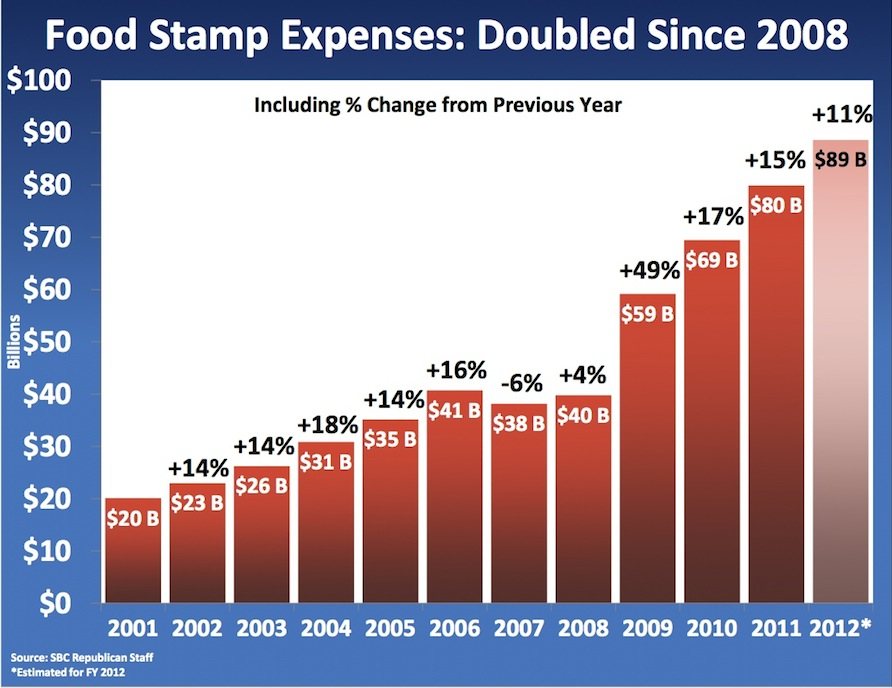Media
The “Facts” on Food Stamps
 City Paper contributor Daniel Denvir tries to diminish the impact of our Philadelphia Inquirer column on food stamps by offering “facts” in rebuttal. Unfortunately, most of these “facts” are merely matters of opinion or simply wrong.
City Paper contributor Daniel Denvir tries to diminish the impact of our Philadelphia Inquirer column on food stamps by offering “facts” in rebuttal. Unfortunately, most of these “facts” are merely matters of opinion or simply wrong.
The first “fact” claims that we shouldn’t worry about food stamp growth because most of the money is “federal dollars.” But federal funds are not free money, and yes, residents of Pennsylvania pay federal taxes. The high cost of federal spending on food stamps—and costs are growing rapidly—should worry taxpayers. In just eight fiscal years, total costs for food stamps (formally called SNAP) have more than doubled in Pennsylvania. The national picture is even worse, with food stamp spending doubling since 2008.
Denvir then cites an Inquirer reporter citing advocates citing a federal report that the “fraud rate” (really referring to the error rate) is 0.1 percent. Except this isn’t true—the reported error rate is at actually 40 times higher. According to the USDA, the latest SNAP payment error rate for Pennsylvania is 3.93 percent. Twenty-two states have better error rates, and Pennsylvania’s rate is slightly above the national average of 3.81 percent.
Another “fact” cited is that there must not be errors, because the Inspector General has a unit to look at fraud and waste. But eliminating the asset test and other eligibility limits was a deliberate decision to reduce the official error rate-you can’t make an eligibility error when everyone is eligible. On top of broadening eligibility, the Rendell administration cut in half the number of fraud referrals to the Inspector General. In 2002, approximately 47,000 cases of suspected welfare fraud were referred annually to the Inspector General. However, by 2010 the Inspector General received only 27,645 referrals, even though caseloads had dramatically increased. Is it any surprise the state won awards for low error rates when so few cases were investigated?
Finally, the City Paper claims there is only one known millionaire who collected food stamps, so this really is all unnecessary. This is a straw man argument. While the savings from an asset test may be small in the scope of government spending, and there may be only a few cases of millionaires receiving benefits, Pennsylvanians with adequate resources should not be allowed to abuse the system. Reinstating an asset test is not about punishing the poor, but protecting the truly needy at a time when taxpayers are stretched thin.